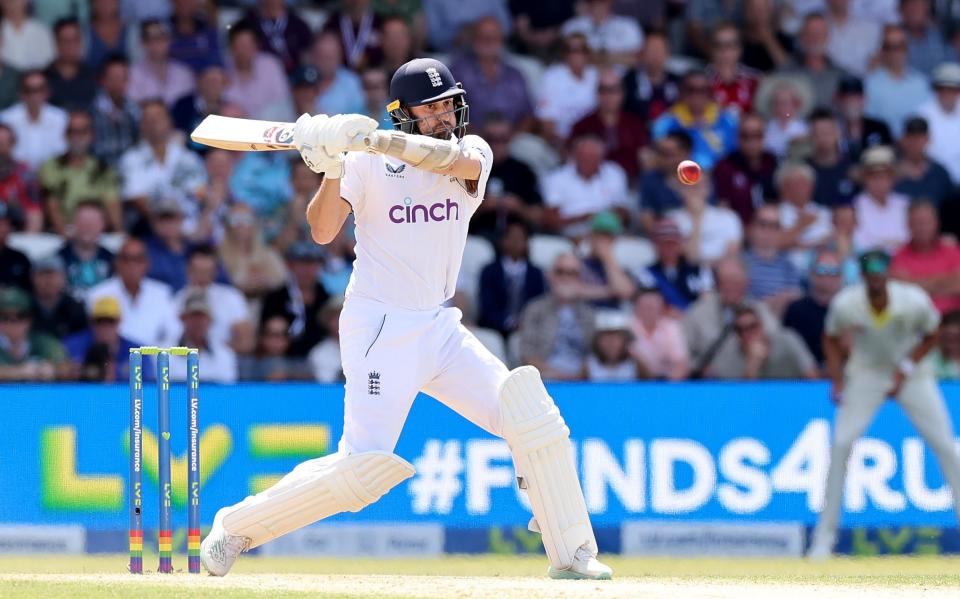
It was not the best Ashes series, because the primary issue was decided in the fourth Test by Manchester’s drizzle. We were robbed of a climax at the Oval such as there was in 2005, and in 1953 and 1926, when England overcame all the ravages of world war to regain the urn.
It was however – a subtle distinction – the best Test series, as a whole, against Australia that England has ever seen, being the closest, the shortest (at 45 days), the most entertaining, the fastest-paced (at least when England were batting), and the most exciting. The first Test at Lord’s in 2005 was not close; those two post-war triumphs came at the end of rain-affected series which ended 1-0.
Except in the Old Trafford Test, the Tests this summer proceeded on a knife-edge throughout: the balance was tipped by a wicket here, or a quick swat there like Mark Wood’s 24 off eight balls at Headingley. Never has any five-Test series been so close in terms of results. Australia won by two wickets and by 43 runs, England by three wickets and 49 runs.

So the closest comparison, as an Ashes series that was entertaining from first ball to last, has to be 1972, which similarly ended 2-2, but in this case England retained the Ashes which they had won in Australia. The roles were almost reversed from this summer. An ageing and careful England team under Ray Illingworth – MJK Smith came out of retirement to bat – mirrored Australia this summer, while Australia under Ian Chappell and spearheaded by Dennis Lillee were young and vigorous like Ben Stokes’s team.
This was also, in a sense, the most egalitarian of Ashes series in that nobody dominated. No batsman scored 500 runs and ruled as Steve Smith had done in the 2019 series; no bowler took 25 wickets and ruled as Mitchell Johnson had in 2013-14. Both sides used 14 players and all of them had a look-in, a brief spell or innings. Even spin played a part, in spite of the injuries to Jack Leach and Nathan Lyon – England took 15 wickets with spin, Australia 18 – although it was only off-spin.
For a sporting contest which began in 1877, and caught fire when a veil or bail was burnt in honour of the England captain on Christmas Eve in 1882, it is astonishing that it does not age or atrophy; the Ashes series only grows and grows in mind and imagination. While Australia retain this useless yet priceless urn, every bone-weary player can feel proud at being involved.
Part of the continuing attraction is that, over the many decades, national characteristics have not died. This may be sentimental, but when the Australians were under extreme fire from Jonny Bairstow at Old Trafford, and the baggy green caps were all spread around the boundaries, they held their line, man for man, and did not falter.

The characteristics of English cricketers, through the ages, were exemplified by their player of the series. When Chris Woakes embarked on his game-changing spell in the sunny final session of this series, the crowd on the old gasometer side of the Oval roared him all the way back to his fielding position. The match and series, with the injustice of a 3-1 scoreline, had been tipping Australia’s way, and Steve Smith and Travis Head only needed 120 more runs. Woakes acknowledged the applause for Head’s wicket by raising his left hand, but only so high as his chest.
When Woakes took a second wicket, that of Smith, which essentially won the game for England, he took off his cap with his left hand and raised his right hand in acknowledgement – but no higher than his waist. This was Sir Jack Hobbs bowing out at the Oval in 1930, or Sir Alastair Cook retiring in 2018, the peak of English self-effacement.
Stuart Broad, of course, went to the opposite extreme of milking every moment; but that comes naturally to him, as a great orchestrator. He was always going to nip in with the last wicket or two. He is one of the few cricketers who can look back without any regret, his journey complete, his retirement joyous.

It was a series that held something for everyone, English or Australian or bystander, because everyone had a view about Alex Carey’s stumping of Bairstow at Lord’s. (To a veteran Pakistani journalist present at the end, I perhaps naively urged that he should call for five-Test series between India and Pakistan, to be played somewhere, anywhere, to start the process of bringing the governments closer.)
Not 10 minutes after Broad had taken the last wicket, and the final scoreline had been decided, the stumps had been removed and only one man remained on the square. The Oval groundsman was sweeping the dust from the creases at each end and dumping it in a bucket. Perhaps he was unaware that the original urn held dust. It does not matter. This contest of all cricketing contests, only strengthened by this summer, lives on.
Article courtesy of
Source link